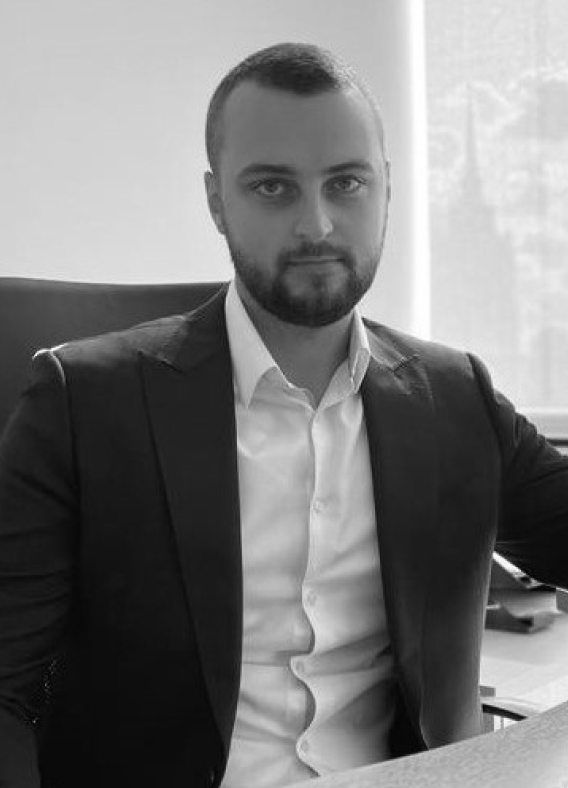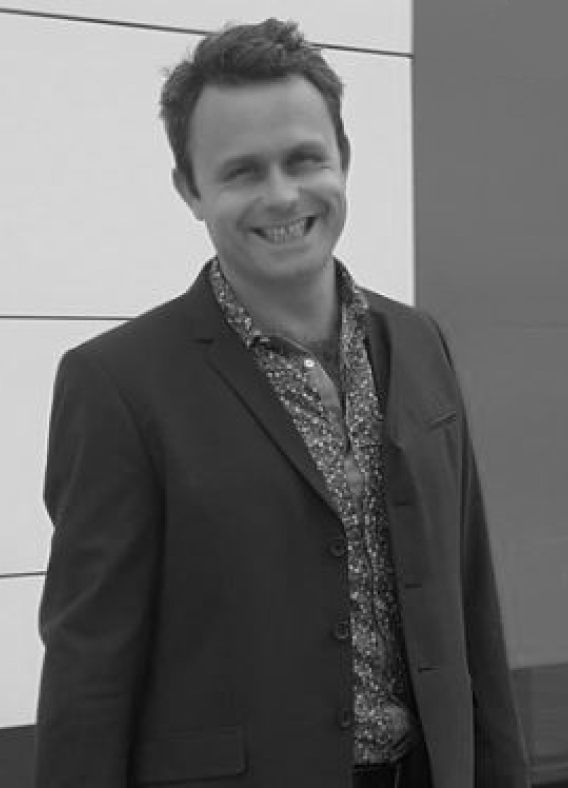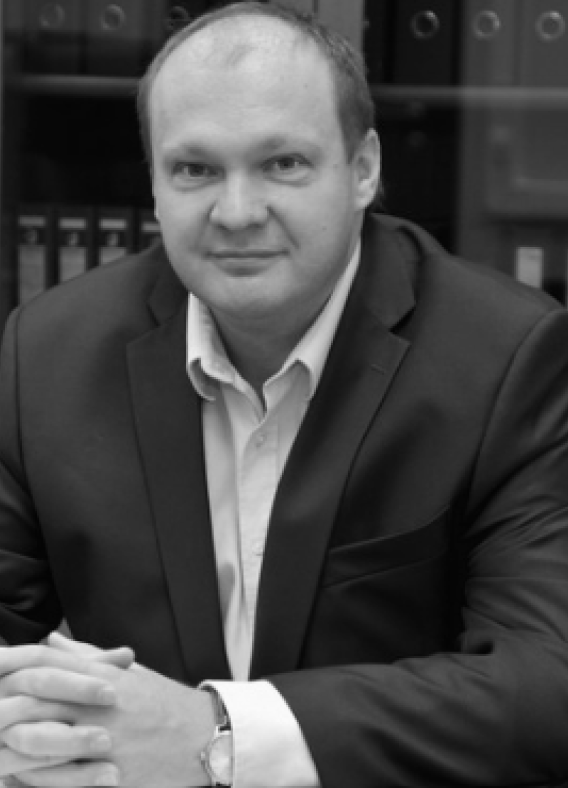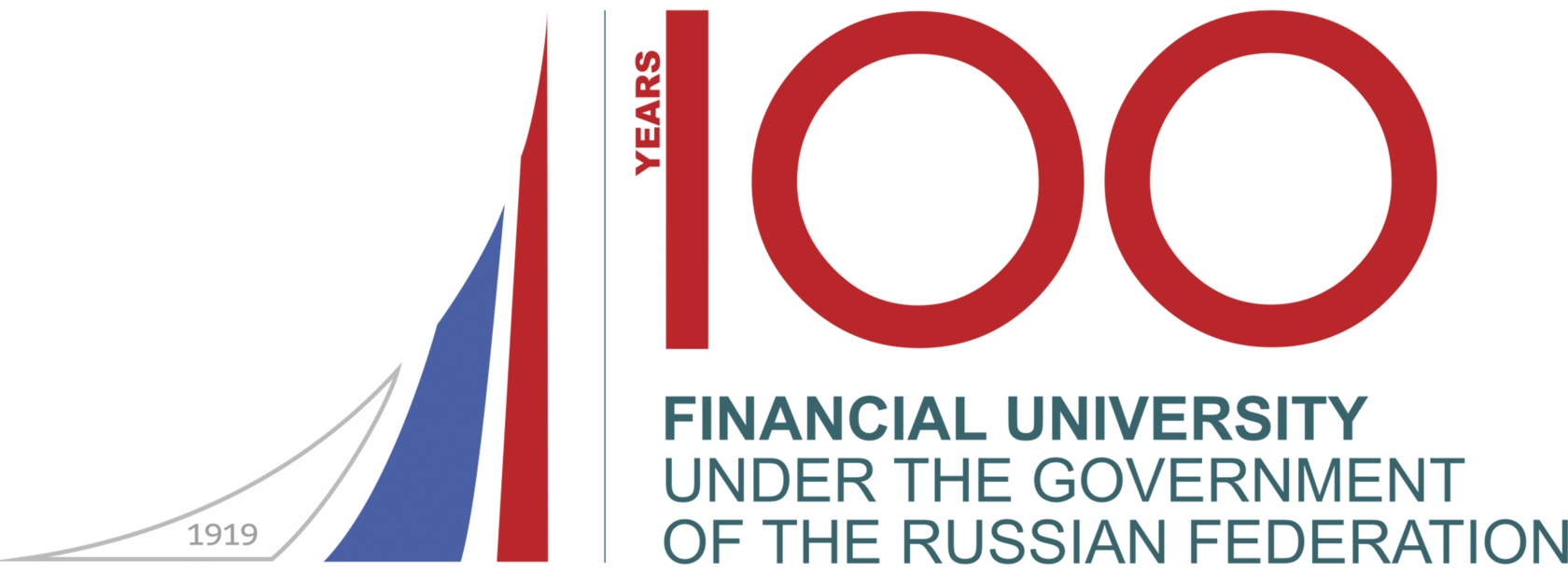TEDS'23
TECHNOLOGY & ENTREPRENEURSHIP
IN DIGITAL SOCIETY
Make your contribution to the field of technology and entrepreneurship in the digital era.
About our place and mission
The technological advancements have a crucial impact on economic systems and how economic values will be created. Among constant rethinking of strategies, managerial practices and environments to address existing challenges, researchers and practitioners look at the variety and diversity of new trends emerged due to globalization and technological breakthroughs.
The Technology & Entrepreneurship in Digital Society Conference is an opportunity to bring together researchers and experts in emerging technologies from both public and private sectors to discuss issues related to the development, implementation, use, and management of emerging technologies and the move to the digital economy.
The mission of the Conference is to promote innovative research that highlights the impact of emerging technologies of the digital economy on the business models and entrepreneurship. The Conference committee welcomes submissions from researchers and practitioners working in a wide variety of fields, particularly those that probe the relationships and interdependencies among innovation, economic development, and the intersection of technology and entrepreneurship.
The conference takes place annually since 2018.
The working language of the Conference is English.
All materials of the TEDS conference are published by Publishing house «Real economy» LLC
The Technology & Entrepreneurship in Digital Society Conference is an opportunity to bring together researchers and experts in emerging technologies from both public and private sectors to discuss issues related to the development, implementation, use, and management of emerging technologies and the move to the digital economy.
The mission of the Conference is to promote innovative research that highlights the impact of emerging technologies of the digital economy on the business models and entrepreneurship. The Conference committee welcomes submissions from researchers and practitioners working in a wide variety of fields, particularly those that probe the relationships and interdependencies among innovation, economic development, and the intersection of technology and entrepreneurship.
The conference takes place annually since 2018.
The working language of the Conference is English.
All materials of the TEDS conference are published by Publishing house «Real economy» LLC
New reality requires new approaches
During the plenary session, experts shared their vision of the current situation, commented on the risks and opportunities that have arisen, and presented the results of the study.
Opening the session, the head and professor of the Department of Strategic and Innovative Development of the Faculty of the Higher School of Management of the Financial University under the Government of the Russian Federation Arkady Trachuk emphasized that every year the conference arouses great interest among the audience – representatives of higher education institutions, government agencies, research organizations, and companies in the real sector of the economy. This year, more than 350 people, including 180 students, took part in the event.
The topic of the plenary session was designated as follows: “Re:start – How business is rebuilding innovation and investment strategies of companies in the era of global change.”
“Russia has faced an absolutely amazing set of macro- and microeconomic challenges, but today we are talking about their management aspects. They are unique because, on the one hand, we see the disappearance of individual markets, individual opportunities that companies have become accustomed to over the past decades, as well as the investment sources that they used, - says Arkady Trachuk. - On the other hand, new opportunities and markets are emerging. These markets can be both less and more marginal. Serious efforts are required to enter and consolidate the latter."
Professor Trachuk noted that the labor market within Russia is also changing, and these changes look different in the regions: somewhere there is a shortage of IT specialists, and somewhere there is a shortage of highly skilled workers and "blue collars".
"There are distortions in the wage system and the motivation system. All these factors need to be understood and methodological approaches developed, thanks to which the leadership of the country, industries and companies will have new views and points of reference that will help manage the processes occurring in the Russian economy," Arkady Trachuk emphasized.
Vladimir Korovkin, Senior Lecturer in Business Practice at the SKOLKOVO School of Management, spoke about how management science is transforming in Russia.
“We are truly in an unprecedented economic situation from all points of view, but this also opens up unprecedented opportunities for management science in the country,” the expert is convinced. “People at the level of functional and general directors who are directly responsible for the company’s work in the real sector of the economy are coming to Skolkovo. We see a completely different request from them - they want to learn how to work in new conditions. And they don’t expect us to give them some ready-made recipes, but expect that we will think together, research, and look for options that will be adequate for the current situation. Everything used to be simple: we had a set of classic management textbooks, we took the necessary book off the shelf, opened a set of cases, and carried out business education.”
Now this approach does not work, since the new reality requires at least the development or rethinking of everything that management theory has developed to date.
"Considering the requests of our clients, we understand that we have very little room for error. We cannot afford to offer them solutions that will not work or be effective based on some high-level conceptual considerations. They expect research and facts from us, not some ideologically loaded constructs. This is also a huge opportunity, because until now, research in the field of management sciences conducted in Russia has not formed a single, holistic picture," says Vladimir Korovkin.
The report by Alexander Nevsky, Chief Advisor of the Department for Analytical Support of Legislation and Parliamentary Programs of the Expert and Analytical Department of the State Duma of the Federal Assembly of the Russian Federation, discussed investment management to ensure economic growth.
"As we understand, economic growth is the basis for prosperity for everyone: the state, business, and citizens. Its driver is effective investment. In today's conditions, this topic is becoming extremely relevant," the expert notes.
During his speech, relying on Rosstat data from 2017 to 2022 and the Forecast of the Ministry of Economic Development of Russia for the budget for 2024-2025, he considered the current and projected growth rates of investments in the domestic economy and their volume. Thus, economic growth in 2023 is expected to be at the level of 2.8% of GDP. According to the forecast, the volume of investments for 2024 is planned at 34.0 trillion rubles (+ 2.4 trillion rubles compared to the previous year), in 2025 - 36.7 trillion rubles (+ 2.7 trillion rubles) in 2026 - 39.6 trillion rubles (+ 2.9 trillion rubles)
"Technological sovereignty is most effectively ensured in industries that are sufficiently remote from the technological border: the pipe industry, the furniture industry, woodworking," says Natalia Linder. "In industries close to the technological border (aircraft manufacturing, pharmaceuticals), the possibilities for borrowing technologies have proven to be limited, and subcontracting networks are not sufficiently developed for localization. Sustainable technological sovereignty in industrial industries requires our own research, development, and key components."
Opening the session, the head and professor of the Department of Strategic and Innovative Development of the Faculty of the Higher School of Management of the Financial University under the Government of the Russian Federation Arkady Trachuk emphasized that every year the conference arouses great interest among the audience – representatives of higher education institutions, government agencies, research organizations, and companies in the real sector of the economy. This year, more than 350 people, including 180 students, took part in the event.
The topic of the plenary session was designated as follows: “Re:start – How business is rebuilding innovation and investment strategies of companies in the era of global change.”
“Russia has faced an absolutely amazing set of macro- and microeconomic challenges, but today we are talking about their management aspects. They are unique because, on the one hand, we see the disappearance of individual markets, individual opportunities that companies have become accustomed to over the past decades, as well as the investment sources that they used, - says Arkady Trachuk. - On the other hand, new opportunities and markets are emerging. These markets can be both less and more marginal. Serious efforts are required to enter and consolidate the latter."
Professor Trachuk noted that the labor market within Russia is also changing, and these changes look different in the regions: somewhere there is a shortage of IT specialists, and somewhere there is a shortage of highly skilled workers and "blue collars".
"There are distortions in the wage system and the motivation system. All these factors need to be understood and methodological approaches developed, thanks to which the leadership of the country, industries and companies will have new views and points of reference that will help manage the processes occurring in the Russian economy," Arkady Trachuk emphasized.
Vladimir Korovkin, Senior Lecturer in Business Practice at the SKOLKOVO School of Management, spoke about how management science is transforming in Russia.
“We are truly in an unprecedented economic situation from all points of view, but this also opens up unprecedented opportunities for management science in the country,” the expert is convinced. “People at the level of functional and general directors who are directly responsible for the company’s work in the real sector of the economy are coming to Skolkovo. We see a completely different request from them - they want to learn how to work in new conditions. And they don’t expect us to give them some ready-made recipes, but expect that we will think together, research, and look for options that will be adequate for the current situation. Everything used to be simple: we had a set of classic management textbooks, we took the necessary book off the shelf, opened a set of cases, and carried out business education.”
Now this approach does not work, since the new reality requires at least the development or rethinking of everything that management theory has developed to date.
"Considering the requests of our clients, we understand that we have very little room for error. We cannot afford to offer them solutions that will not work or be effective based on some high-level conceptual considerations. They expect research and facts from us, not some ideologically loaded constructs. This is also a huge opportunity, because until now, research in the field of management sciences conducted in Russia has not formed a single, holistic picture," says Vladimir Korovkin.
The report by Alexander Nevsky, Chief Advisor of the Department for Analytical Support of Legislation and Parliamentary Programs of the Expert and Analytical Department of the State Duma of the Federal Assembly of the Russian Federation, discussed investment management to ensure economic growth.
"As we understand, economic growth is the basis for prosperity for everyone: the state, business, and citizens. Its driver is effective investment. In today's conditions, this topic is becoming extremely relevant," the expert notes.
During his speech, relying on Rosstat data from 2017 to 2022 and the Forecast of the Ministry of Economic Development of Russia for the budget for 2024-2025, he considered the current and projected growth rates of investments in the domestic economy and their volume. Thus, economic growth in 2023 is expected to be at the level of 2.8% of GDP. According to the forecast, the volume of investments for 2024 is planned at 34.0 trillion rubles (+ 2.4 trillion rubles compared to the previous year), in 2025 - 36.7 trillion rubles (+ 2.7 trillion rubles) in 2026 - 39.6 trillion rubles (+ 2.9 trillion rubles)
"Technological sovereignty is most effectively ensured in industries that are sufficiently remote from the technological border: the pipe industry, the furniture industry, woodworking," says Natalia Linder. "In industries close to the technological border (aircraft manufacturing, pharmaceuticals), the possibilities for borrowing technologies have proven to be limited, and subcontracting networks are not sufficiently developed for localization. Sustainable technological sovereignty in industrial industries requires our own research, development, and key components."
THE PLENARY SESSION
The main topic of the Plenary Session:
«Growth and development in the era of black swans»
The conference will cover the following issues:
• Crisis – a possibility space for entrepreneurs
• Changing currency configurations and their impact on business
• How leadership changes during a crisis
• The new value of human relations
• Strategy: solutions for choosing new business areas and determining the growth zone
• New geographical markets: new opportunities and covert threats
«Growth and development in the era of black swans»
The conference will cover the following issues:
• Crisis – a possibility space for entrepreneurs
• Changing currency configurations and their impact on business
• How leadership changes during a crisis
• The new value of human relations
• Strategy: solutions for choosing new business areas and determining the growth zone
• New geographical markets: new opportunities and covert threats
CONFERENCE TRACKS
The track invites researchers to focus on the changes that increased uncertainty has brought to the use of digital assets and currency. Of interest are studies that give an idea of both theoretical and applied issues arising from the experience of countries "advanced" in the use of digital currencies.
Topics of interest include but are not limited to
• The role of digital assets and currencies in creating uncertainty
• How is the relevance of digital assets and currencies changing in the face of uncertainty?
• Prospects for the development of cryptocurrency markets and opportunities for consumers and businesses
• The role of digital assets and currencies in creating new business models
• Risks and further development of digital assets and currencies
• Can the ruble become a stablecoin in the world of digital currencies?
Topics of interest include but are not limited to
• The role of digital assets and currencies in creating uncertainty
• How is the relevance of digital assets and currencies changing in the face of uncertainty?
• Prospects for the development of cryptocurrency markets and opportunities for consumers and businesses
• The role of digital assets and currencies in creating new business models
• Risks and further development of digital assets and currencies
• Can the ruble become a stablecoin in the world of digital currencies?
The track invites researchers to concentrate on the study of theoretical and applied issues of digital transformation in new realities in order to determine the priority tasks of transformation at the present stage.
Topics of interest include but are not limited to
• Identification of the priority of tasks for digital business transformation in terms of the priority of the criterion of minimizing the resources spent
• New approaches in strategic management of companies in the face of increasing competitive challenges
• Risk management of depreciation of well-established business processes: lessons of digital transformation
• Changing the target settings of companies as a response to the strengthening of the "rigidity" of the external environment
Topics of interest include but are not limited to
• Identification of the priority of tasks for digital business transformation in terms of the priority of the criterion of minimizing the resources spent
• New approaches in strategic management of companies in the face of increasing competitive challenges
• Risk management of depreciation of well-established business processes: lessons of digital transformation
• Changing the target settings of companies as a response to the strengthening of the "rigidity" of the external environment
Kupreev Daniil Andreevich
Topic of the speech: "Measures of state support for foreign economic activity in the new reality"
Vice-Rector for Commercialization and Director of the AlmaU Technology Commercialization Center at the Almaty University of Management
Founder and CEO of Marchmont Capital Partners, expert in venture capital investment
Founder and CEO of Marchmont Capital Partners, expert in venture capital investment
Kendrick Davis White
Topic of the speech: "Modernizing Kazakhstan's Universities - Opening up Central Asia as a Gateway into the Global Supply Chain"
Key speakers





Head of the project on state export support of JSC "Russian Export Center", Candidate of Economic Sciences.
Work experience - more than 10 years in various organizations of the real sector and development institutions: Russian Export Center JSC, United Grain Company JSC, TD Agrotorg LLC (Rosselkhoznadzor). Professional and scientific interests: export support, venture investments, innovations in various sectors of the economy, cryptocurrencies.
Work experience - more than 10 years in various organizations of the real sector and development institutions: Russian Export Center JSC, United Grain Company JSC, TD Agrotorg LLC (Rosselkhoznadzor). Professional and scientific interests: export support, venture investments, innovations in various sectors of the economy, cryptocurrencies.
Jean-Eric Pele
Dr. Pele works on topics related to consumer behavior when using the website and other digital systems (e-learning, knowledge management, e-commerce platforms) and how the interface can change this behavior. His current research interests are focused on social networks, interface design, mobile devices and device usability. Dr. Pele is also actively involved in national research projects.
Topic of the speech: "Considering the importance of the convenience of last-mile home delivery with cargo bikes"
Kolobov Alexander Vladimirovich
Director for the Development of the Severgroup Business System, Candidate of Technical Sciences (Russia)
Topic of the speech: "Strategic management of organization development of diversified industrial companies in modern conditions"
Arkady Vladimirovich Trachuk
Head of the Department of Strategic and Innovative Development, Doctor of Economics, Professor, Financial University
Topic of the presentation: "Imitation strategies of Russian industrial companies"
IMPORTANT DATES
Registration Deadline
November, 08
Abstract acceptance notification
November, 15
Conference Day
November, 30
PAPER SUBMISSION GUIDELINES
We expect submissions to contain results of the original research based on scientific methods that contribute to the global knowledge in the selected areas of inquiry. In this regard, we ask all potential participants to follow the TEDS Academic Ethics Policy and make sure the paper comply with the requirements mentioned below. The detection of the rules violation leads to the rejection at any stage.
Originality of Papers
The paper submitted to TEDS should contain original results and must not be published anywhere before. An exception can be made for papers published on the Internet as draft-versions or preprints, but the Program Committee in each case takes the final decision individually. The author should disclose if the paper has already been presented or is available on the Internet as a draft or preprint. This rule also applies to the papers published in languages, other than English.
Plagiarism
A paper must contain no plagiarism (including extensive self-plagiarism) and other incorrect borrowings. Plagiarism includes copying and pasting passages from the Internet and other sources, word-for-word borrowings from other texts as well as paraphrasing them without proper references. All direct borrowings should be accompanied with references, quotation marks and other means of academic language. All submissions undergo pre-review for originality and plagiarism.
Copyright
The author should have all proper rights for copyrighted materials used in the paper. Pictures, figures etc. must either have free license for commercial use or be created by the author.
Originality of Papers
The paper submitted to TEDS should contain original results and must not be published anywhere before. An exception can be made for papers published on the Internet as draft-versions or preprints, but the Program Committee in each case takes the final decision individually. The author should disclose if the paper has already been presented or is available on the Internet as a draft or preprint. This rule also applies to the papers published in languages, other than English.
Plagiarism
A paper must contain no plagiarism (including extensive self-plagiarism) and other incorrect borrowings. Plagiarism includes copying and pasting passages from the Internet and other sources, word-for-word borrowings from other texts as well as paraphrasing them without proper references. All direct borrowings should be accompanied with references, quotation marks and other means of academic language. All submissions undergo pre-review for originality and plagiarism.
Copyright
The author should have all proper rights for copyrighted materials used in the paper. Pictures, figures etc. must either have free license for commercial use or be created by the author.
Scope
The paper should fit into the general scope of the conference and be attributed to one of the conference tracks. We welcome interdisciplinary papers that combine social sciences with information and computer sciences. Purely technical papers without implications to social sciences are not accepted.
Format & Length
The paper must be prepared according to the guidelines. The template can be found here: (download)
Full papers must be within 15 000 - 20 000 characters (with spaces) limit.
DOI should be indicated whenever possible. It is more preferable to arrange the reference list in the alphabetical order.
The paper should fit into the general scope of the conference and be attributed to one of the conference tracks. We welcome interdisciplinary papers that combine social sciences with information and computer sciences. Purely technical papers without implications to social sciences are not accepted.
Format & Length
The paper must be prepared according to the guidelines. The template can be found here: (download)
Full papers must be within 15 000 - 20 000 characters (with spaces) limit.
DOI should be indicated whenever possible. It is more preferable to arrange the reference list in the alphabetical order.
Each paper is reviewed by at least two members of the Program Committee to be accepted. The review criteria are the following:
The paper should have clear contribution to the research field. Purely descriptive papers without any clear findings are not accepted. The following elements of the paper are required:
Research Question / Problem Statement: the authors should give a clear research question (for research papers) or problem statement (for experience papers) they are to address in the text. Both the research question and problem statement need to be justified by either theoretical or social topicality.
Literature / Background Review: the paper must contain a solid literature review encompassing the up-to-date academic articles and books (for research papers) or give a sufficient background (for experience papers). The review needs to be relevant to the research question.
Theoretical Grounding and Methodology: The paper should give a theoretical argument or use a theoretical framework, as well as to provide a methodology relevant to address the research problem.
Empirical Analysis / Case Selection: Qualitative or quantitative methods of empirical analysis should be used. Another option is to present a review, but in this case the literature selection method should be specified. In case of experience papers, the authors need to justify the case selection and prove its significance to the international audience.
The paper should have clear contribution to the research field. Purely descriptive papers without any clear findings are not accepted. The following elements of the paper are required:
Research Question / Problem Statement: the authors should give a clear research question (for research papers) or problem statement (for experience papers) they are to address in the text. Both the research question and problem statement need to be justified by either theoretical or social topicality.
Literature / Background Review: the paper must contain a solid literature review encompassing the up-to-date academic articles and books (for research papers) or give a sufficient background (for experience papers). The review needs to be relevant to the research question.
Theoretical Grounding and Methodology: The paper should give a theoretical argument or use a theoretical framework, as well as to provide a methodology relevant to address the research problem.
Empirical Analysis / Case Selection: Qualitative or quantitative methods of empirical analysis should be used. Another option is to present a review, but in this case the literature selection method should be specified. In case of experience papers, the authors need to justify the case selection and prove its significance to the international audience.
Trachuk A.V. — Doctor of Economics, Professor, Dean of the Faculty "Higher School of Management», Head of The Program Commitee
Abdikeev N.M. — Doctor of Technical Sciences, Director of the Institute of Industrial Policy And Institutional Development
Voronova L.M. — Doctor of physics and mathematics, professor, head of chair at Moscow Technical University of Communications and Informatics
Kleiner G.B. — Doctor of Technical Sciences, Professor, Corresponding Member of the Russian Academy of Sciences, Deputy Director of the Central Economics and Mathematics Institute of the Russian Academy of Sciences
Klevtsov V.V. — Doctor of Economics Professor of Management Department of the Financal University
Kreindelin V.B.— Doctor of technical sciences, professor, head of chair at Moscow Technical University of Communications and Informatics
Kuzkina A.I. — Director of Digital Business Transformation Sector at KPMG
Kuleshov A.P. — President, Professor of Skolkovo Institute of Science and Technology
Linder N.V. — PhD, Head of Management and Innovation Department of the Financal University
Pankov K.N.— PhD of physics and mathematics, professor, research fellow at Moscow Technical University of Communications and Informatics
Popadyuk T.G.— Doctor of Economics, Professor of Management Department of the Financal University
Saksonov E.A.— Doctor of technical sciences, professor of Moscow Technical University of Communications and Informatics
Shelukhin O.I.— Doctor of technical sciences, professor, head of chair at Moscow Technical University of Communications and Informatics
Solesvik M. — PhD, professor Of Innovation and Management, Business Administration Program, Nord University, Norway
Abdikeev N.M. — Doctor of Technical Sciences, Director of the Institute of Industrial Policy And Institutional Development
Voronova L.M. — Doctor of physics and mathematics, professor, head of chair at Moscow Technical University of Communications and Informatics
Kleiner G.B. — Doctor of Technical Sciences, Professor, Corresponding Member of the Russian Academy of Sciences, Deputy Director of the Central Economics and Mathematics Institute of the Russian Academy of Sciences
Klevtsov V.V. — Doctor of Economics Professor of Management Department of the Financal University
Kreindelin V.B.— Doctor of technical sciences, professor, head of chair at Moscow Technical University of Communications and Informatics
Kuzkina A.I. — Director of Digital Business Transformation Sector at KPMG
Kuleshov A.P. — President, Professor of Skolkovo Institute of Science and Technology
Linder N.V. — PhD, Head of Management and Innovation Department of the Financal University
Pankov K.N.— PhD of physics and mathematics, professor, research fellow at Moscow Technical University of Communications and Informatics
Popadyuk T.G.— Doctor of Economics, Professor of Management Department of the Financal University
Saksonov E.A.— Doctor of technical sciences, professor of Moscow Technical University of Communications and Informatics
Shelukhin O.I.— Doctor of technical sciences, professor, head of chair at Moscow Technical University of Communications and Informatics
Solesvik M. — PhD, professor Of Innovation and Management, Business Administration Program, Nord University, Norway
Prokofiev S.E.. — Doctor of Economics, Professor, Rector of the Financial University, Head of The Organizing Commitee
Bashkatova A.A. - Head of the Department for Organization and Coordination of Scientific Activities
Gruzina Yu.M. — PhD, Deputy Vice-Rector for Scientific Work
Kameneva E.A. — Doctor of Economics, Vice-Rector for the Development of Educational Programs and International Affairs
Kislyakov A.S. — Head of Visa Organization Department
Khovalova Т.V. — Manager of the Faculty "Higher School of Management»
Leokhin Yu.L. — Doctor of Technical Sciences, Professor, Vice-Rector for Scientific Work of The Moscow Technical University of Communications and Informatics
Linder N.V. — PhD, Head of the Management and Innovation Department
Mukhanov A.Yu. — Vice-Rector for the International Affairs and Public Relations of The Moscow Technical University of Communications and Informatics
Prikhodko L.V. — PhD, Head of International Cooperation Department
Tarasov I.V. — Deputy Director of the Center for Sectoral Research and Consulting
Bashkatova A.A. - Head of the Department for Organization and Coordination of Scientific Activities
Gruzina Yu.M. — PhD, Deputy Vice-Rector for Scientific Work
Kameneva E.A. — Doctor of Economics, Vice-Rector for the Development of Educational Programs and International Affairs
Kislyakov A.S. — Head of Visa Organization Department
Khovalova Т.V. — Manager of the Faculty "Higher School of Management»
Leokhin Yu.L. — Doctor of Technical Sciences, Professor, Vice-Rector for Scientific Work of The Moscow Technical University of Communications and Informatics
Linder N.V. — PhD, Head of the Management and Innovation Department
Mukhanov A.Yu. — Vice-Rector for the International Affairs and Public Relations of The Moscow Technical University of Communications and Informatics
Prikhodko L.V. — PhD, Head of International Cooperation Department
Tarasov I.V. — Deputy Director of the Center for Sectoral Research and Consulting
PAST CONFERENCES & CONFERENCE PROCEEDINGS
Conference proceedings are indexed in Google Scholar, Crossref and RSCI.
Selected Papers will be published in the Strategic Decisions and Risk Management Journal
Selected Papers will be published in the Strategic Decisions and Risk Management Journal
CONTACTS
Financial University under the Government of the Russian Federation
Moscow, Verkhnaya Maslovka st. 15
Tel: +7 (495) 249 52 68
E-mail: conf@fa.ru
Publishing house «Real economy» LLC
190020, Saint-Petersburg, Staro-Petergofsky PR., 43-45, lit. B, of. 4n
Moscow, Verkhnaya Maslovka st. 15
Tel: +7 (495) 249 52 68
E-mail: conf@fa.ru
Publishing house «Real economy» LLC
190020, Saint-Petersburg, Staro-Petergofsky PR., 43-45, lit. B, of. 4n

